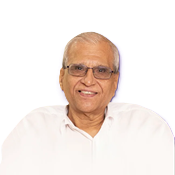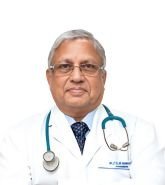Best Lung Cancer Treatment Doctors in India
Lung cancer is one of the most common and deadly cancers globally, with millions of people diagnosed each year. In India, the situation is no different, as lung cancer cases are on the rise, particularly among those with a history of smoking or exposure to pollutants. However, advancements in medical science have made it possible to fight this disease with a greater chance of success than ever before. One of the key factors in ensuring the best possible outcomes is having access to the right expertise. In this content, we’ll guide you through the Best Lung Cancer Treatment Doctors in India, their expertise, treatment options, and why choosing the right specialist is essential for your recovery.
Find the Best Lung Cancer Treatment Doctors in India—top thoracic surgeons and oncologists at JCI-accredited hospitals offering robotic, minimally invasive, and personalized care.
List of Best Lung Cancer Doctors in India

Dr. Vinod Raina

Dr. Kapil Kumar

Dr. Niranjan Naik

Prof. Dr. Suresh H. Advani

Dr. Ranga Rao Rangaraju

Dr. Harit Chaturvedi

Dr. Mukesh Patekar

Dr. Jyoti Wadhwa

Dr. Sajal Kakkar

Dr. Sandeep Nayak P

Dr. Sandeep Mehta

Dr. Arvind Kumar

Dr. Rajesh Mistry
Key Factors to Consider Before Choosing Lung Cancer Specialists
A highly skilled and experienced doctor can make a significant difference in the effectiveness of lung cancer treatment, the overall experience, and the patient’s recovery. Here are some key factors to consider before making your choice:
- Look for credentials: Ensure that the doctor has board certifications in oncology and a specific focus on lung cancer.
- Experience with your cancer type: Since lung cancer can have different subtypes, choose a doctor who has experience treating the type of lung cancer you or your loved one is diagnosed with (non-small cell, small cell, or other variants)
- Ask for recommendations: Seek referrals from primary care physicians, pulmonologists, or other healthcare providers who specialize in cancer treatment.
- Check online reviews: Websites like Healthgrades, Practo, or hospital websites can provide patient reviews and ratings.
- Consider access to advanced treatments: Ensure the hospital is equipped for cutting-edge treatments such as immunotherapy, targeted therapy, and minimally invasive surgeries.
- Inpatient and outpatient care: Check if the hospital offers comprehensive care for all stages of treatment, from diagnosis to post-treatment follow-up and rehabilitation.
Types of Doctors Involved in Lung Cancer Treatment
Treating lung cancer requires a collaborative approach, involving a team of specialists, each contributing their expertise to deliver tailored and effective care.
1. Medical Oncologist – A medical oncologist is the central figure in most cancer treatment plans. They specialize in diagnosing and treating cancer using medications such as Chemotherapy, Targeted therapy, and Immunotherapy.
2. Thoracic Surgeon – A thoracic surgeon is a specialist in surgeries involving the lungs, chest, and esophagus. If your cancer is operable, they perform procedures such as:
- Lobectomy (removal of a lobe of the lung)
- Pneumonectomy (removal of an entire lung)
- Wedge resection (removal of a small portion of the lung)
3. Pulmonologist – A pulmonologist specializes in diseases of the lungs and respiratory system. They are often the first specialists involved when symptoms such as persistent cough, breathlessness, or chest pain arise. They play a crucial role in:
- Diagnosing lung cancer through bronchoscopy and other tests
- Managing pre-existing lung conditions like COPD or asthma
- Monitoring lung function during and after treatment
4. Radiation Oncologist – A radiation oncologist treats lung cancer using radiation therapy. This approach is used:
- As a primary treatment in early-stage cancer
- Alongside chemotherapy in locally advanced stages
- To shrink tumors before surgery or relieve symptoms in later stages
5. Pathologist – A pathologist is the doctor who analyzes tissue samples under a microscope to determine:
- The type of lung cancer (small cell vs. non-small cell)
- The stage and grade of the tumor
- The presence of specific mutations or biomarkers
6. Radiologist – A radiologist specializes in interpreting medical imaging like:
- Chest X-rays
- CT scans
- PET scans
- MRIs
7. Interventional Pulmonologist or Interventional Radiologist – These specialists perform minimally invasive procedures to:
- Biopsy of lung nodules
- Drain fluid from the lungs (pleural effusion)
- Place stents or catheters
8. Palliative Care Specialist – A palliative care doctor focuses on improving the quality of life for patients living with serious illness. They help manage symptoms such as:
- Pain
- Nausea
- Shortness of breath
- Fatigue
9. Genetic Counselor – If your cancer has specific genetic markers (like EGFR, ALK, or ROS1 mutations), a genetic counselor may be involved. They help you understand the implications of genetic testing and guide decisions about targeted therapies or clinical trials.
10. Psychologist or Psychiatrist – Dealing with lung cancer is not just a physical challenge—it takes a mental and emotional toll as well. Mental health professionals help patients cope with:
- Anxiety or depression
- Fear of recurrence
- Treatment-related stress
How to Choose the Right Doctor for Lung Cancer?
1. Seek a Lung Cancer Specialist
Look for a doctor who specializes in lung cancer. These specialists are more likely to be up-to-date with the latest treatments and clinical trials. Their focused experience can make a significant difference in your care.
2. Verify Credentials and Experience
Ensure the doctor is board-certified in oncology or thoracic surgery, depending on your treatment needs. Consider their years of experience and the number of lung cancer patients they’ve treated. A seasoned specialist can offer insights that come from years of practice.
3. Evaluate Communication and Comfort
Your doctor should listen to your concerns, answer questions clearly, and involve you in decision-making. A good rapport can ease the stress of treatment and help you feel more in control.
4. Consider the Hospital’s Resources
The hospital’s facilities and support services are crucial. Institutions with multidisciplinary teams, including oncologists, radiologists, and support staff, can provide comprehensive care. Access to advanced diagnostic tools and treatment options is also beneficial.
5. Don’t Hesitate to Seek a Second Opinion
It’s okay to consult another specialist to confirm your diagnosis and treatment plan. Second opinions can provide reassurance and might offer alternative approaches that better suit your needs.
Remember, you’re not just choosing a doctor; you’re selecting a partner in your fight against cancer. Take the time to find someone who meets your medical needs and supports you emotionally throughout your journey.
Why Choose Lung Cancer Treatment in India?
Accessing lung cancer care in India has become more feasible, thanks to a network of committed cancer centers and supportive government programs. Although challenges persist, such as the need for greater awareness and early detection, the collective efforts of healthcare professionals and policymakers are leading to better outcomes for lung cancer patients.
With ongoing emphasis on enhancing infrastructure and education, India is making notable progress in making effective lung cancer treatment accessible to everyone in need.
FAQs
Q. What kind of specialists are involved in lung cancer treatment?
Lung cancer treatment in India involves a multidisciplinary team, including medical oncologists (for chemotherapy, immunotherapy, targeted therapy), radiation oncologists (for radiotherapy), and thoracic oncologists or surgical oncologists (for lung surgery). Leading lung cancer doctors in India often work within cancer centers offering integrated care plans for better outcomes.
Q. How can I choose the right lung cancer doctor in India?
To find the best doctor for lung cancer treatment in India, consider their specialization in thoracic oncology, years of clinical experience, hospital affiliation, participation in clinical trials, and patient reviews. It’s also important to evaluate their approach to personalized treatment, including genetic profiling and immunotherapy planning.
Q. Are the top lung cancer doctors in India experienced with advanced treatments like immunotherapy and targeted therapy?
Yes, many of the top lung cancer specialists in India are highly experienced with the latest treatments, including immunotherapy, targeted therapies, and personalized medicine based on molecular profiling. They follow international guidelines and are often involved in ongoing research and global clinical trials.
Q. What hospitals in India have the best doctors for lung cancer treatment?
Leading cancer hospitals such as Tata Memorial Hospital (Mumbai), AIIMS (Delhi), Medanta – The Medicity (Gurgaon), Apollo Cancer Centres, and Fortis Memorial Research Institute host some of the best lung cancer doctors in India, supported by state-of-the-art diagnostic and treatment facilities.
Q. Can international patients consult India’s top lung cancer specialists remotely?
Yes, many top oncologists in India offer teleconsultation services, allowing international patients to receive expert opinions, second opinions, and treatment plans without traveling immediately. Platforms like Cancer Rounds streamline this process by connecting patients with verified lung cancer doctors in India.
Q. How much does lung cancer treatment cost in India with a top specialist?
Lung cancer treatment costs in India vary based on the stage of cancer and the treatment approach (surgery, chemotherapy, targeted therapy, or radiation). However, even when treated by the best lung cancer doctors in India, the cost is significantly lower than in Western countries, making India a leading destination for affordable, high-quality cancer care.









